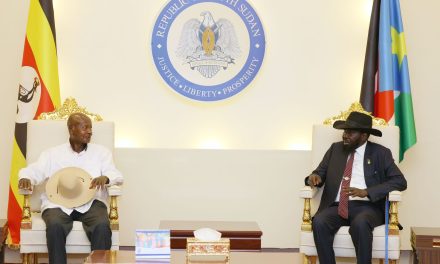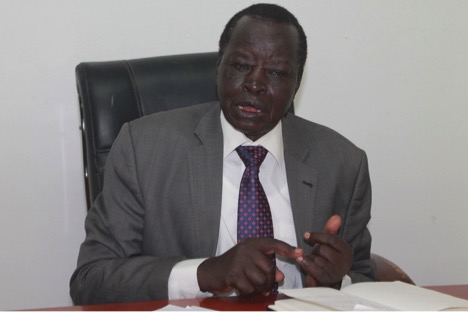
South Sudan: Police urges politicians and local leaders to help control arms
By Simon Deng
The control on the proliferations of small arms and light weapons cannot be realized unless all elements including the politicians and local chiefs are involved, Lt.Gen. Abraham Manyuat, the Assistant inspector General for Administration and Finance in South Sudan Police Services.
A five-days symposium on the control of small arms is underway in the country’s capital Juba, funded by Bonn International Centre and organized by Regional Centre on small arms and Bureau for community security and small arms control.
Over 30 participants from South Sudan Defense Forces, South Sudan National Police Services, and National Security Services are attending the symposium.
“We need mechanism and we cannot reach that mechanism unless all elements which are involved, whether politicians, police, local government, chiefs and elders, they have to go to the area, sit and explain the advantage and disadvantage of small arms and the majority will hand over their guns,” said Manyuat.
“We have been talking about disarming the populations but also we have to control our arms as security organs, some of the departments have custodies for guns but guns which belong to organized forces are no longer in the hands of these institutions,” he said.
Christo Simon Fataki, the Director of Institutional Development for Regional Centre on Small Arms said that the weapons in the hands of the civilians come from the national stockpiles, adding that proper stockpiles management is much needed.
“The impacts of small arms and the havoc that they inflicted on societies is glaringly apparent here in South Sudan. It has been proved that all the weapons that we had are coming from the national stockpiles, the problem is within our national stockpiles, we need to control it and when we control it there will be no proliferation or illicit trade in small arms,” said Fataki.
“The often tragic reality for our time is that weapon do fall into the wrong hands with disastrous consequences for the civilian population who make up the majority of conflict victims, they are maimed, tortured, rendered homeless and loss their lives and properties as a result of the conflicts that are fueled by the easy availability of small arms and light weapons,” he said.
Andrew Kuol Nyuon, chairperson of Bureau for Community Security and Small Arms Control said that the spillover of small arms from security forces is limited, noting that the proliferation of small arms started with the Anyanya one revolution.
“There may be a spillover that takes place within the organized forces but that is not much, the civilians got the guns from the time of Anyanya one up to now, we are training people to control and managed arms,” said Nyuon.
“Let us take this issue of small arms and light weapons very seriously, guns are bad, the gun is your first enemy, you are misusing guns and this misuse is what is killing so let us say enough is enough,” he said.



































